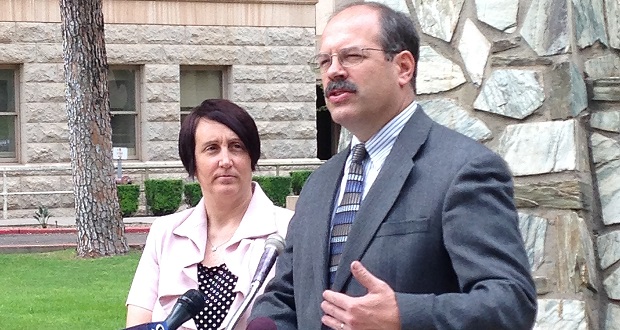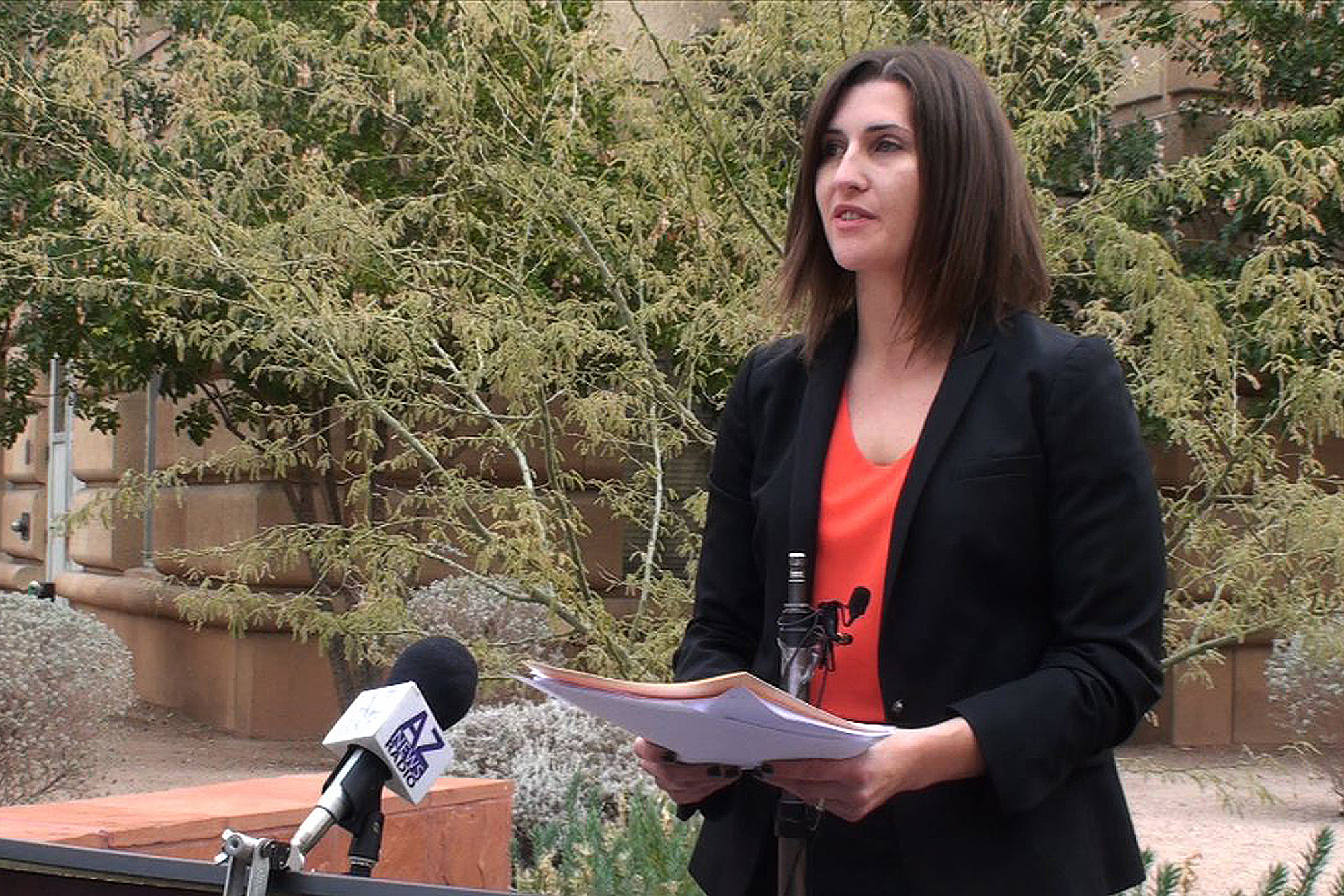Report gives Arizona grade of B in government spending transparency
Having a state website dedicated to spending transparency is a good thing, but not enough people pay attention to it, and government officials have too many ways around it, an open-government advocate said Wednesday.
Report: State gets close to half of revenue from feds, near top in nation
WASHINGTON – Almost half of Arizona’s general revenues came from federal funds in fiscal 2011, the third-highest share in the nation, according to a recent report from the Tax Foundation.
When it comes to AHCCCS expansion, consider the Golden Rule
Byron Schlomach’s recent editorial, “Standing on principle can be costly,” challenges lawmakers to stand up for a “principle” when making a choice about Medicaid expansion. He describes exaggerated worst case scenarios that fail to acknowledge the certain bleak reality that will occur if the Legislature does nothing to restore Arizona Health Care Cost Containment System (AHCCCS) coverag[...]
Standing on principle can be costly
In the debate over Medicaid expansion, the ace up the sleeve of expansion advocates is federal largesse. The federal health care law requires states to eventually cover 10 percent of the cost of expanding Medicaid eligibility; but for the next three years 100 percent of the cost is covered by the federal treasury.
Brewer proposal would put unprecedented power in AHCCCS director’s hands
By using a loophole in Proposition 108 that may allow her to sidestep the need to get a two-thirds vote for her Medicaid expansion plan, Gov. Jan Brewer would be putting an unprecedented amount of power in her AHCCCS director’s hands.
Group gives Phoenix grade of D on spending transparency
A public watchdog group on Wednesday gave Phoenix a grade of D for its online disclosure of spending information, ranking it 19th among the 30 largest cities in the U.S.
Facts don’t add up in study of government worker pay
A few months ago, the city of Phoenix rolled out a $450,000 taxpayer-funded report showing that local governmental workers were paid 6 percent more in aggregate wages and benefits than private sector workers on average.
Following your tax dollars
While many Arizonans are enjoying spring break and our beautiful weather, it is an appropriate coincidence that this past week was also designated “Sunshine Week,” a nationwide initiative that draws public attention to the need for increased government transparency and accountability.
Scramble over rising revenues begins – save it or spend it
After four years of painful slashing, a steady uptick in state revenues could lead to a budget showdown the public hasn’t seen since the heydays of Arizona’s economy — what to do with “surplus” money.
Arizona’s minimum wage to increase 30 cents at start of next year
The Industrial Commission of Arizona announced earlier this month that the minimum wage will increase from $7.35 to $7.65 an hour. Tipped employees, who make $3 below the standard minimum wage, will also receive the raise.
Surplus? What surplus?
Arizona’s fiscal 2011, which ended June 30, was expected to end with a $332 million shortfall. As it happens, the shortfall was instead around $30 million, mainly due to a big uptick in corporate income tax collections.
Credit rating lesson from Down Under
Despite Standard & Poor’s downgrade of the national credit rating, the federal government’s rating is still better than Arizona’s.







































